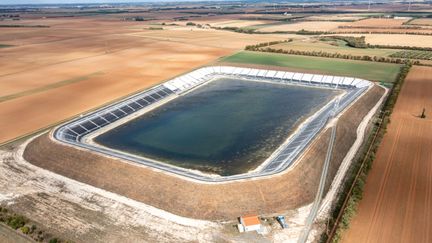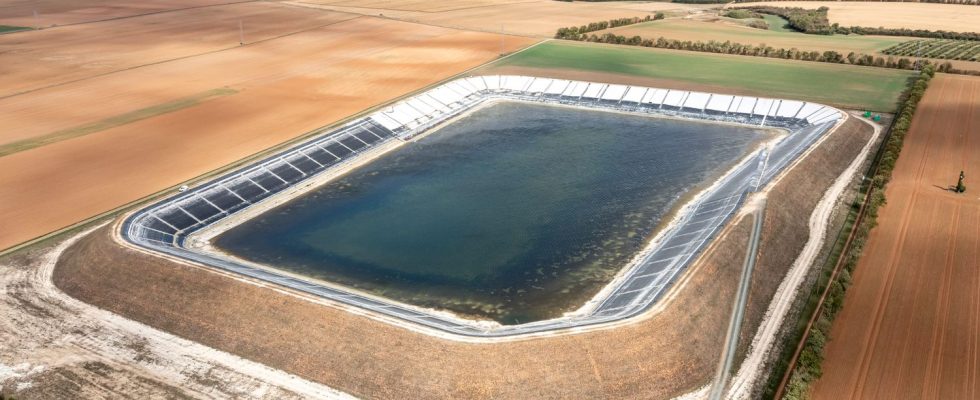These projects attacked by environmental defense associations aimed to create reserves with a total capacity of around three million cubic meters.
Published
Update
Reading time :
1 minute

Two water reservoir projects intended for agricultural irrigation in Poitou-Charentes, nicknamed “mega-basins” by their opponents, were canceled on Tuesday October 3 by the administrative justice system, which pointed out their unsuitability for the effects of climate change. These projects aimed to create and exploit 15 so-called “substitution” reserves, with a total capacity of approximately three million cubic meters.
The dispute concerned nine reservoirs planned for the Aume and Couture basins in the departments of Charente, Charente-Maritime and Deux-Sèvres; and six others in the Pallu sub-basin (Vienna). Local environmental defense associations had appealed to the administrative court of Poitiers to have the prefectural decrees having authorized, in 2021, these projects carried out by collectives of irrigating farmers annulled. The principle of these reservoirs consists of taking water from the surface aquifers in winter, to make it available to irrigating farmers in summer when rain is rare.
“Inaccuracies” in the environmental impact study
A first decision consulted by AFP highlights “inaccuracies, omissions and inadequacies” in the environmental impact study of the nine basins planned in the Aume-Couture basin. The latter had “to harm the complete information of the population”. The court further considers that “the project is not associated with real water saving measures and does not take into account the foreseeable effects of climate change”.
In Vienna, the judges point out a “over-sizing of the project” in terms of volumes of water to be withdrawn to fill the reserves, taking into account what the local hydrological environment “is capable of supplying in satisfactory ecological conditions” and taking into account the “predictable effects of climate change”.

